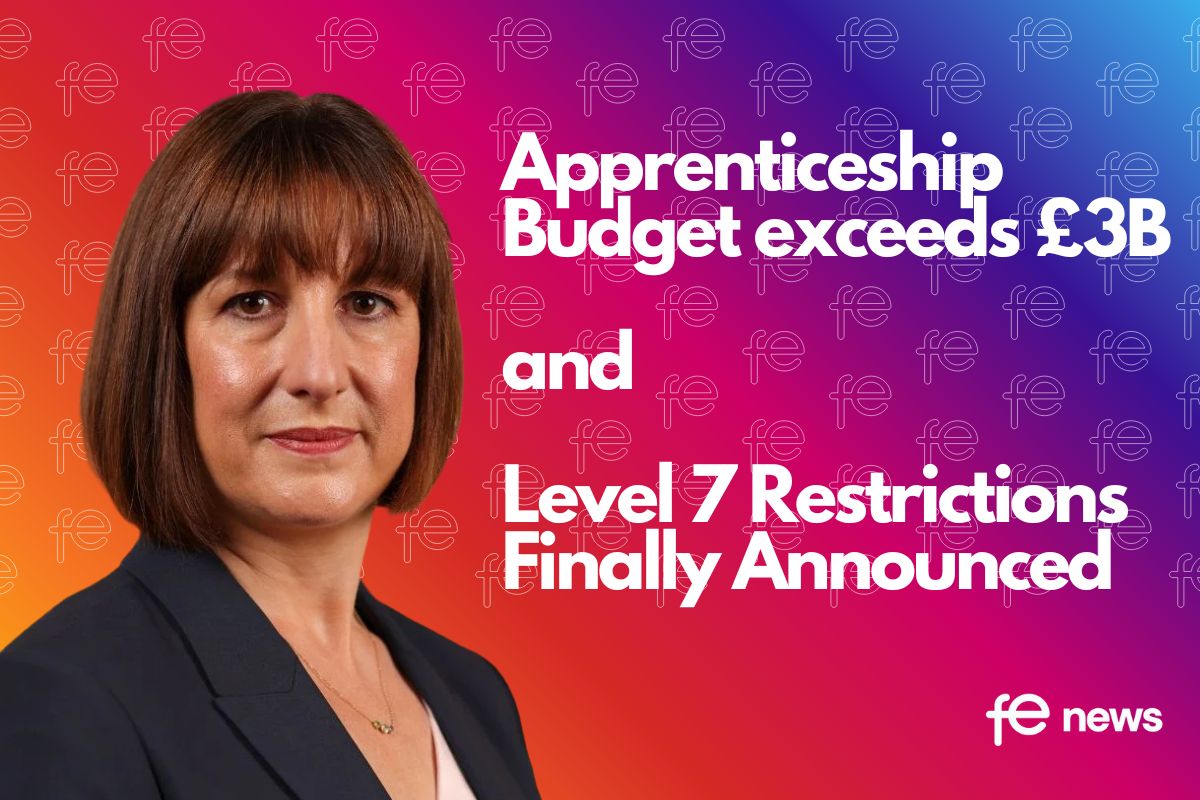Apprenticeship Levy Reform – A Letter to the Chancellor

Yesterday (22 September), as the new Government gets in its stride and back to business, and ahead of today’s “mini-budget”, The 5% Club calls for greater transparency, ease of access and efficiency in the Apprenticeship Levy System.
In particular, it seeks an assurance that all funding created by the Levy is used to best effect in the Apprenticeship System, and that underspent funding – some £600 Million a year and rising – is protected, independently managed and not “returned to the Treasury”. Outside of these reforms, The 5% Club also believes that the minimum wage for Apprentices should be removed and that they should be protected with the same living wage legislation as all other workers; this removing the practice and any notion of encouraged wage suppression.
The 5% Club has sent a letter to the new Chancellor, Rt Hon Kwasi Kwarteng MP, setting out our seventeen recommendations that we would wish to see considered to reform and improve the utilisation of the Apprenticeship Levy. Delayed in observance of the UK national mourning period following the passing of Her Majesty Queen Elizabeth II, we would hope that by submitting it now, it can be considered by the new Government as it returns to business.
In developing these proposals, we have drawn input from our over 750 Members and all those employers who are subject to the English Apprenticeship System and were prepared to comment. We have also collaborated closely with colleagues in the Chartered Management Institute, who are today also submitting reform; whilst our proposals have a slightly different emphasis, the sentiment and overall intent are very much aligned. That being to better use the funding created from the Apprenticeship Levy, ease and widen access to it, and ensure it is appropriately expended for the benefit of all workers, irrespective of their personal identity, characteristics, and social background.
In his Spring Statement speech (delivered in the House of Parliament on 23 March 2022) the former Chancellor, Rt Hon Rishi Sunak MP, highlighted how we, in the UK, lag behind our international peers when it comes to Adult Technical Education, and committed to “considering” whether the current tax system, including the operation of the Apprenticeship Levy is doing enough to incentivise businesses to invest in the right kinds of training.
Earlier this year, The 5% Club explored the operation of the Levy and the performance of the Department for Education’s Funded Apprenticeship Programme through a series of Freedom of Information requests. The responses to these inquiries highlighted the following:
Apprenticeship Levy – from its inception in FY2017/18, receipts from the Levy have grown from £2.271 Billion to £2.910 Billion in FY2020/21 – an increase of 28% over the first 4 years of operation.
Department for Education (DfE) allocated Apprenticeship Funding – based on forecast Levy receipts, the HM Treasury allocates a fixed annual “ring-fenced” budget for Apprenticeships (covering Levy and non-Levy employers) which has grown from £2 Billion in FY2017/18 to £2.5 Billion in FY2020/21 – an increase of 25%, slightly below the growth in receipts. This funding is set to grow slightly to £2.7 Billion in the period to 2024/25 as set out in the Budget & Spending Review announced in December last year – an increase of just 8% over 4 years.
DfE Apprenticeship Budget Underspend – spending on Apprenticeships is demand led, and there has been an increasing underspend in the allocated budget rising from £424 Million in FY2017/18 to £604 Million in FY2020/21 – a sustained underspend of in the region of 20-25%.
Non-Levied Employer expenditure – this aspect of the programme which is focused on those employers with a wage bill of less that £3 Million has grown from £189 Million in FY 2017/18 to £557 Million in FY2020/21 – a near threefold increase, although still only representing about 20% of the available budget.
Co-funding Expenditure – in this area (which shows the expenditure on Levied Employers who have expended their levy funds) has increased from £10 Million in FY2017/18 to £95M in FY2020/21 – now risen to 4% of the available budget.
Other considerations include the changing nature of the Apprenticeship landscape, notably by age and apprenticeship level. The 5% Club has drawn on the following statistics published at the end of March 2022:
Apprentice Age – The under-25s continue to be the dominant age group in Apprenticeships, consistently representing 50-55% of all participants. The under 19s are most likely to opt for an Intermediate or Advanced Apprenticeship, and very unlikely to be offered a Higher Apprenticeship. Conversely at age 25+, the majority are completing a Higher Apprenticeship, with a minority (less than 15% completing a course at the Intermediate Level).
Apprenticeship Level – Intermediate Apprenticeships remain in decline and now (as of 31 March 2022) represent only 24% of all apprenticeships, down from 65% in 2013/14. Advanced Apprenticeships are being sustained at about 44% of the total, and Higher Apprenticeships now represent 32%, up from 2% in 2013/14.
Given this contextual information, and the opening created to provide constructive comment, The 5% Club is asking that the Chancellor consider the following:
National Resilience. In these challenging times, as we tackle both the short- and long-term issues and opportunities of our era, the UK needs a world-class education and skills system, capable of engaging every individual, enabling them to achieve their full potential and participate positively in society through the world of work. This system needs both to deliver the skills urgently needed today in many sectors, and to evolve rapidly in response to the changing nature and needs of tomorrow’s economy.
Apprenticeships will be a key component of this system – for every stage of “lifelong learning” – and we must ensure that the funding created through the Apprenticeship Levy is sustained and used effectively for the national good. We have proposed a number of “transformational adjustments” to the notional “levy management system” that merit consideration, and which we believe will ensure the delivery of the right schemes, in the right place, to the right people, at the right time.
Increasing Productivity. The UK continues to lag the rest of the developed world in terms of productivity, and we believe workforce skills development is an inherent part of the solution here. But this needs an approach that is supportive of employers, reducing complexity not adding additional layers of bureaucracy and administration. The system should be an encouragement and not a detractor – in terms of time and resource – and must be grounded in business reality, including the need to sustain cash-flow, the lifeblood of investment and the innovation required for productivity improvements. We have proposed a number of measures for consideration.
Levelling-Up. It is widely accepted that “talent is everywhere, but opportunity is not”, and that restoring parity of opportunity for all – irrespective of personal characteristics and circumstances, and agnostic of location – is the essential driver in levelling-up. We believe there are adjustments that can be made to the Levy management system that will be supportive of this national agenda and will ensure the available funding can deliver the skills required though a genuinely inclusive and accessible approach.
In addition to these measures, The 5% Club has also suggested that the time has come to remove the national minimum wage for Apprentices. This proposal is made to improve “parity of esteem” in the pathways to work, and to remove any stigmatization and notion that apprentices are of lesser value to all other workers in our society. The 5% Club believes there are numerous other ways to encourage employers to employ apprentices, and believe the time is now right to remove this approach of encouraged wage suppression.
Commenting on the submitted proposals, Mark Cameron OBE, CEO of The 5% Club said, “since the former Chancellor’s Budget Speech there has been much sector commentary of the current system, its evolution – including the lessons to be learned from previous activities dating back to the 1950s – and some great suggestions for improvements. We have harnessed the obvious passion, energy and desire for reform and have provided constructive options back to the Chancellor for consideration. We are especially keen to see greater transparency and ease of access in the system, alongside an assurance that all funding created is used fully and efficiently, and that all surplus is sustained in a new fund under independent governance that is used to benefit the apprenticeship system, the apprentices, and their employers. This is important given the enduring underspending of funding, and the changing nature of Apprenticeships – away from those at the Intermediate Level, which remain a key feeder into the Skills eco-system.”











More and more people and organisations can see one of the best uses for the Levy is to support FE College’s Construction lecturers by topping up salaries so they are not so far below those working in the sector. Without skilled trainers, FE Colleges cannot provide a skilled workforce for housing and infrastructure construction projects.